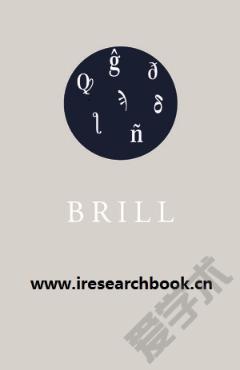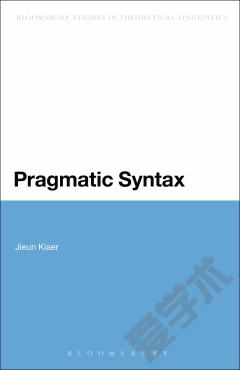The Syntax of Sophocles
'There is a need', writes Professor Moorhouse in his preface, 'for more detailed study of the syntax of the major Greek authors of the Classical period than has hitherto been provided.' Sophocles needs such a study more than any, for his language is surely the most difficult. No other author reveals such subtle nuances, and no other goes so far in bending language to his will. We are fortunate in possessing the great commentary of Jebb, whose 'exceptionally fine feeling for Greek' was singled out for praise by such a judge as Denniston; and we have also the fine 'Introductory Essay on the Language of Sophocles' prefixed to the first volume of Lewis Campbell's edition (1871; 2nd edn., 1879) and the Anhang by Ewald Bruhn which forms the eighth volume of the revision of the Schneidewin-Nauck edition by him and Ludwig Radermacher. But none of these is a systematic study of syntax; and here we have one, written by a skilful and experienced comparative grammarian. The work is set out under headings that denote the various branches of syntax, except particles, which Denniston's great book made it unnecessary to include. First come number and gender (pp. 1-15), then the cases (16-92), prepositions and preverbs (93-133), pronouns (134-62), adjectives and adverbs (163-75), verbs (voices, tenses, moods, infinitives, participles: 176-261); subordinate clauses of various kinds (262-318), negatives (319-39), nominal structure (340-2). Perhaps it is greedy to complain that the index is not quite as full as one would wish, nor has the page much room for one's additions. There is a useful bibliography, besides many references to relevant literature in the text itself. Moorhouse is familiar with all the relevant linguistic literature, and makes effective use of various special studies, such as those of Cuny on the dual, Brunel on verbal aspect, Chantraine on the perfect, Burguiere on the infinitive, Guiraud on nominal phrases, Monteil on relative phrases, Aerts on periphrastic constructions, Bakker on pronouns and on vocatives, Oguse on circumstantial participles, Thesleff on intensification, M. himself on negatives. M. also makes good use of the literature about Sophocles, and about epic and tragedy in general. He was unfortunately too late to be able to use Radt's edition of the fragments, but since Radt so far as possible keeps Pearson's numbering, one is not greatly inconvenienced. Dawe's Teubner edition must have appeared when the work was already considerably advanced, and some readers may find that M. makes insufficient use of its apparatus criticus (note on p. 138 the privileged position accorded to A, and A only, besides L); but the book suffers very little from this deficiency. Inevitably he has often to discuss textual problems, and many of these are so controversial that no solution will command general approval. Some readers will find M. to be too conservative in his manner of dealing with these; but his treatment is admirably sane and judicious, and the material which he presents together with his own sound treatment of it will be of great value to critics of the text. He writes clearly and concisely, with a complete absence of fuss; and although his knowledge of the relative literature is exemplary, he never weighs his reader down with unnecessary learning. He disclaims any intention to treat of style, but scholars interested in the style of Sophocles will ignore him at their peril. Any reader seriously concerned with the problems of Sophoclean language will wish to read this excellent 171
{{comment.content}}








 京公网安备 11010802027623号
京公网安备 11010802027623号